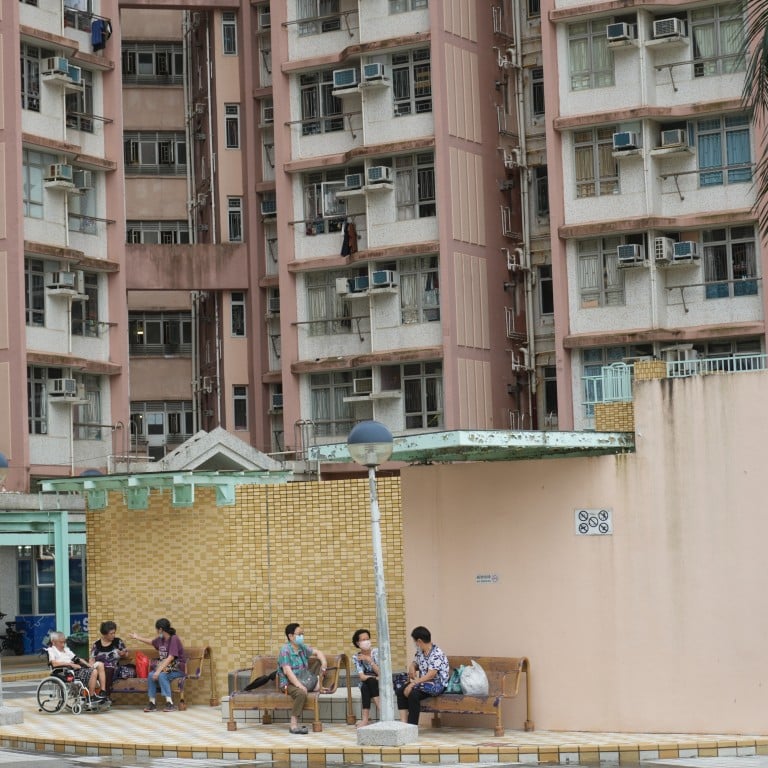Advertisement
Advertisement

Opinion
Alice Wu
Alice Wu
In quest for housing justice in Hong Kong, there should be no room for well-off public flat tenants
- The tighter new rules aimed at curbing abuse of public rental housing and the Home Ownership Scheme may end up only addressing a handful of offenders
- However, given the housing struggles of many in the city, injustice, even on a small scale, must be tackled
The saga of Hong Kong’s housing woes has been the toughest nut that past administrations, to their credit, have tried to crack. The city’s first chief executive tried to roll out an ill-fated 85,000 flat per year policy – ill-fated because it coincided with the 1997 Asian financial crisis that sent property prices plummeting. The policy was blamed for causing negative equity for homeowners.
Former chief executive Leung Chun-ying proposed building public housing on the periphery of Hong Kong’s country parks. And he kept pressing – harder, even – after his tenure.
Leung also suggested land reclamation in the waters off Lantau in his 2014 policy address. His successor, Carrie Lam Cheng Yuet-ngor, took the idea and supersized it. It became her signature housing policy, the Lantau Tomorrow Vision. The current administration toned it down, calling it simply the Kau Yi Chau artificial islands project.
Our leaders have been under pressure to resolve the city’s housing struggles, especially after the 2019 social unrest – the housing issue was identified as the culprit, in addition to interference by foreign forces.
The lack of affordable housing is seen as the cause of widespread discontent, especially among young people. Central government leaders have been increasingly vocal about the need for resolve from the Hong Kong administration to tackle the problem.
China’s Vice-President Han Zheng, when he was the senior vice-premier of the State Council and leader of the Central Leading Group on Hong Kong and Macau affairs, repeatedly raised the issue, highlighting the need for Hong Kong leaders to focus on housing justice.
While the government scrambles for land for housing – whether it is getting it from a golf course or brownfield sites, or redeveloping old buildings – the issue of tenancy abuse at public housing estates is back on the political agenda, especially when it comes to “well-off tenants”.
The ombudsman took the initiative in April to investigate the government’s approach to combating “abuse of public housing resources”. This was in response to growing calls for the government to deal with the issue after it came to light, in the wake of the gruesome murder of model Abby Choi Tin-fung, that her ex-father-in-law owned a subsidised flat despite having a HK$73 million (US$9.3 million) property under his name.
The subsidised flat was bought under the Home Ownership Scheme, which is open to tenants of public rental units, or those whose income and assets do not exceed a certain threshold.
The injustice in this extreme case was at least twofold. Choi’s ex-father-in-law had not only been able to purchase the HOS flat after having a luxury flat in his name, but he bought it using a “green form”, which requires a lower down payment, a pathway meant for public housing tenants or those whose eligibility for public rental housing has been established.
After this came to light, the Housing Bureau admitted the government had not checked the incomes and assets of public flat applicants since launching the scheme in the 1970s. Government officials vowed to plug the loopholes and tackle tenancy abuse.
In April, the government banned public housing tenants who were property owners or who had been asked to vacate public rental units from buying subsidised homes. And recently, the Housing Authority endorsed new measures to combat tenancy abuse, revising the “Well-off Tenants Policies”.
Some have questioned whether there are enough “well-off tenants” to make it worth the devotion of such government attention and public resources – such as the cost of now requiring all tenants to make asset declarations every two years. Annually, an average of 690 households were found to own a residential property, or had exceeded the income and asset limits, accounting for just 0.3 per cent of households screened, according to Secretary for Housing Winnie Ho Wing-yin.
The abuse may not be widespread but it shouldn’t exonerate the government, which has a responsibility to provide adequate living space to those who need it. And while the queue for public housing has shortened, it remains a long five-year wait. It is the government’s job to ensure measures are in place to plug loopholes and disincentivise abuse.
It may be a long time before we can all enjoy complete housing justice, but at least we can start do something about the injustice now.
Alice Wu is a political consultant and a former associate director of the Asia Pacific Media Network at UCLA

3
